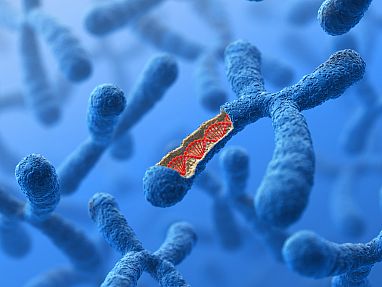Sex Differences in Autoimmune Disease
Millions of people worldwide suffer from autoimmune illnesses, in which the body’s immune system targets itself. However, there is a startling discrepancy: women are disproportionately afflicted and experience the majority of these illnesses at a startling four times the rate of men. This raises an important question: What makes women more prone to autoimmune diseases? Even while a clear solution is still difficult, scientific research reveals a number of intriguing options.
Table of Contents

Hormonal Suite: The Relationship Between Progesterone and Oestrogen
Sex Differences in Autoimmune Disease
Progesterone and oestrogen are two important sex hormones in this intricate balance. Due to the immunosuppressive nature of oestrogen, there appears to be some protection during the peak years of childbearing. This could help explain why, when oestrogen levels drop after menopause, autoimmune illnesses frequently flare up. But the image is not so cut-and-dry. More activity in certain autoimmune diseases, such as lupus, is also correlated with elevated levels of oestrogen, indicating a more complex role. Furthermore, progesterone, which normally balances the effects of oestrogen, may potentially be involved in several autoimmune disorders. More research is necessary to fully understand the complex dance of these hormones and how they affect the immune system.
A Question of Genes and the X: A Genetic Dance on the X Chromosome?
Sex Differences in Autoimmune Disease
Men have one X and one Y chromosome, while women have two X chromosomes. This distinction opens up exciting new possibilities in the field of genetics. X chromosome genes, such as Toll-like receptor 7 (TLR7), have been connected to a number of autoimmune disorders. Some suggest that because females express two copies of these genes, they may be more vulnerable to any negative effects. To complicate matters further, the X chromosome also contains genes that have protective properties. It is a continuous task to interpret the intricate interactions between X-linked genes and their role in autoimmune disorders.
Beyond Biology: The Effects of Environment and Other Factors
Sex Differences in Autoimmune Disease
Although genes and hormones have a big influence, environmental variables also matter. Certain environmental triggers, such infections and toxins, may be more common in women and have the potential to activate the immune system and cause autoimmune diseases. In addition, although research in these areas is still developing, elements like stress and lifestyle choices may also play a role.
A Range of Exposure: Not Every Autoimmune Illness Is the Same
Sex Differences in Autoimmune Disease
It’s critical to keep in mind that not all autoimmune disorders exhibit the same pattern. Certain diseases, such multiple sclerosis and Parkinson’s disease, are more common in men, whereas disorders like lupus, rheumatoid arthritis, and Sjögren’s syndrome disproportionately impact women. This demonstrates the complexity of autoimmune diseases and the demand for condition-specific research.
Revealing the Way Ahead: Investigation and Hope
Comprehending the disparities in autoimmune illness between the sexes is a challenging task. The complex interactions between hormones, genes, environment, and individual differences are the subject of ongoing research. This information has enormous potential for:
Sex Differences in Autoimmune Disease
- Better diagnosis and therapy: Doctors can create more specialised diagnostic instruments and treatment plans by knowing the precise variables that lead to autoimmune illness in women.
- Personalised medicine: Treating patients based on their unique characteristics, such as sex, may result in more efficient and customised care for each and every patient.
- Prevention strategies: Targeted preventive measures may be made possible by identifying the particular risk factors associated with autoimmune illness in women.
Sex Differences in Autoimmune Disease
Millions of people affected by autoimmune diseases can find hope in the continuous examination of sex variations in these ailments, even though the full picture is still being explored. By working together and conducting more research, we can solve this intricate puzzle and provide people the tools they need to take better care of their health.


